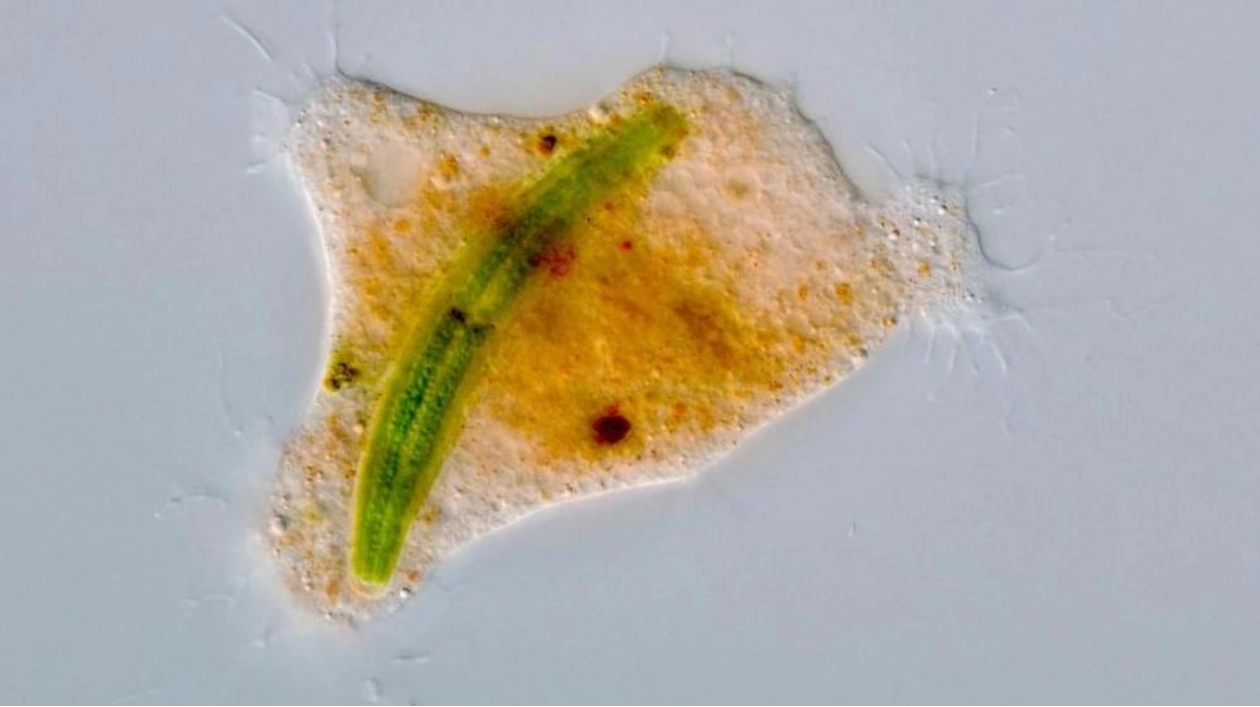A newly discovered amoeba, named Strigomyxa ruptor, has been found prowling the waters of the German countryside, enveloping its prey and leaving behind empty husks. This unique predator, unlike any other protist, was detailed in a study published in the August issue of Ecology and Evolution. Protozoologists Andreas Suthaus and Sebastian Hess from the University of Cologne in Germany were on the hunt for microscopic vampires—specifically, vampyrellid amoebas that bore holes into algae cells and consumed their insides. To explore the biological diversity of these protists, the researchers collected water samples from ponds and wetlands near Cologne.
Under the microscope, one petri dish filled with water was bustling with round, reddish, immobile blobs—the appearance of vampyrellids after feeding. However, nearby algae showed no signs of the typical feeding holes. Time-lapse photography confirmed that these amoebas were indeed vampyrellids, but their feeding behavior was unlike any other known microscopic vampire. The single-celled organisms engulfed and divided Closterium algae cells, extracting the insides and discarding the rest.
Feeding experiments revealed that Strigomyxa ruptor retains engulfed algae in a specialized compartment. Enzymes within this chamber seem to dissolve one side of the prey’s cell wall, while the other side remains attached to the chamber wall. As the compartment expands, the algae cell opens like a shelled pistachio. The amoeba then reaches into itself to scoop up its meal, wrapping up and expelling the empty cell wall. Genetic analysis suggests that these peculiar vampyrellids belong to a previously undescribed genus and species. The genus name Strigomyxa, derived from ancient Greek words for owl and mucus or slime, reflects the microbe’s owl-like regurgitation behavior.
This discovery highlights the ingenuity of evolution, as a single cell performs a complex mechanistic action typically seen in multicellular organisms. Andreas Suthaus notes, “It tells us about the ingenuity of evolution.”






